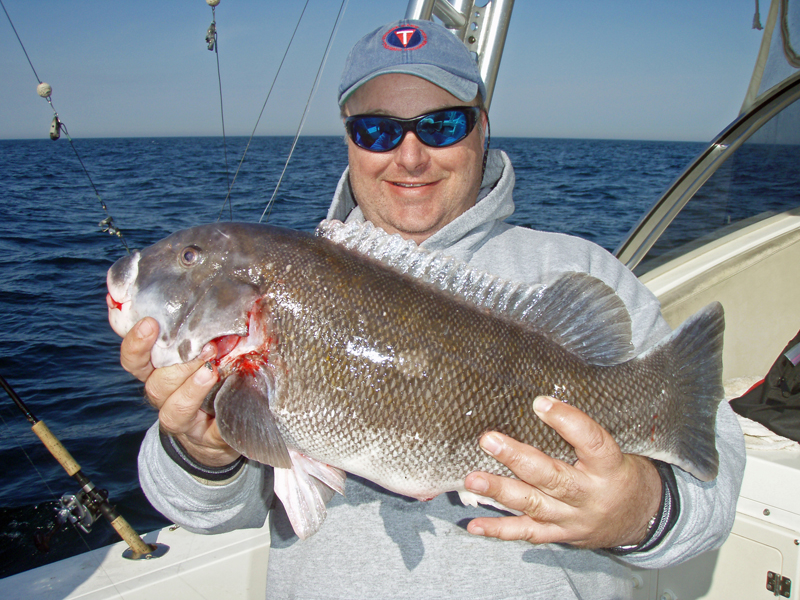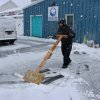More deep-water fishing tips
Flounder are not the only fish available to Delaware anglers that can reach deep water. Black sea bass and tog are very popular, as are triggerfish, spadefish and porgies.
Now, for the purpose of this discussion, I will stick with water between 80 and 150 feet. There are some anglers who have perfected deep-dropping in depths below 1,000 feet for tilefish and swords. I am not one of those fishermen.
As we mentioned last week, braided line is the best choice for deep-water fishing because it is thin and has very little stretch. The fact that it is thin means it has less resistance to water pressure, so it is less likely to be moved by the current than thicker monofilament. Less stretch means braid will tell you what is going on at the end of your line. You should be able to feel when a fish bites, when you are fishing over mud, sand, rocks or wrecks, and act accordingly.
The same rod and reel you use for flounder should do for bottom fish. I do change from a one-hook rig with a fish finder to a two-hook, top-bottom rig. I only use circle hooks when fishing with bait. The leaders have to be at least six inches long to let the fish have the bait inside its mouth in order for the circle hook to do its job.
On days when the wind and the current work together to make holding bottom difficult, the captain can use the boat’s engines to counteract the pressure. Exactly how to do this is a produce of experience and something that comes from running the boat in various conditions. In other words, I can’t explain it; you have to experience it.
One thing I have experienced is the new system where a GPS can be integrated with the boat’s motors, and once the system is activated it will hold the boat in position. Want to anchor on a wreck? No problem. Want to hold position while waiting for the Route 50 bridge in Ocean City to open? No problem. Some electric trolling motors will do the same thing.
For the rest of us, we still have to set an anchor if we want to fish a wreck.
First, find the wreck and mark it with a buoy. Next, run up to the buoy and drift back with the wind and current while keeping an eye on the compass. Next, run back to the buoy and go past it on the same heading for a few hundred yards. Now, drop the anchor. Let out the rode until the wreck is under the boat. Wreck anchors can be set right in the wreck, but because the rode is short, that can be dangerous in all but calm seas.
No more surf-fishing tags
On March 3, I received a call from DNREC warning me that only 1,000 surf-fishing permits remained to be sold of the 17,000 allotted by DNREC. The date was March 3, and to be truthful, I had not considered purchasing my permit this early in the year. I usually wait until my first surf-fishing trip in April and buy the tag at the park office at Cape Henlopen or Delaware Seashore State Park. I would have been out of luck if I had waited that long this year.
I went directly to my office and ordered my permit online. Now, I have to wait for the U.S. Postal Service to deliver it to me. As soon as I ordered my permit, I went on Facebook and learned that the last 1,000 were sold. That was fast!
I feel certain that a lot of surf fishermen did not get permits this year. I know how close I came to not getting one, and I am sure there are others who missed out completely. I don’t plan to make that mistake again. I will have my permit as early as possible next year.
Fishing report
Still no report from the open waters of the ocean or bay.
On Tuesday, I tried Newton Pond and kept my streak alive by not catching a trout from there. I arrived around 8:30 a.m. and fished from the pier. It was cold and windy, and before long I managed to get the mother of all wind knots in my mono line. By the time I cleared that out, my hands were numb from the cold and I retreated back to my truck. From there, I ate my peanut butter and jelly sandwich, drank my coffee, and I might have dozed off.
Having seen no fish caught during this time, I decided to call it a day. I later found out that the scheduled stocking on Monday that I was counting on did not happen.






















































